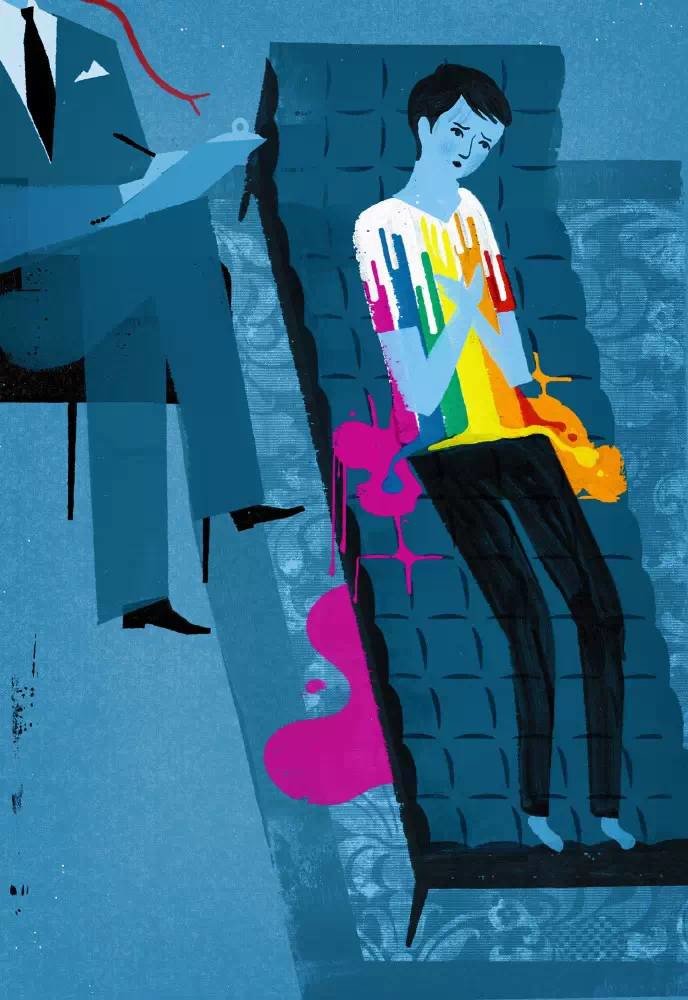Today will be someone’s final day. But, before they fire the gun, swallow the pills, tie the noose, they will think,”the world’s better off without me.” Maybe he was exhausted by depression for longer than anyone could bear. Maybe she lost her job, and as shame piled atop missed mortgage payments, hope died, she renounced her future, and thought, “I might as well kill myself.” Some will end their lives never having cried their hopelessness to anyone, but others will reach for a hand to tether them to the world. If that hand is yours, how will you respond? What will you do?
Although I’ve never heard those pleas in my personal life, I have professionally intersected with people during dark days, and I was chilled by their determination to plunge into finality I strive to stave off. People react differently to expressed suicidal thoughts. Some help; others protect themselves with denial; a few react passively, and unknowingly confirm someone’s belief no one cares.
When I worked in a psychiatric emergency room, I asked questions to connect with patients, and assess their place on the suicide continuum. Even if you never work in a psychiatric emergency room, it is possible you could receive a phone call or visit from someone making a last grasp at finding someone who will tell them they are worthy of living, and that it can get better. You needn’t be a mental health professional to have this conversation. In addition to forging connection, the following questions are information gathering tools should you be the link between a person and emergency personnel.
This question ranks highest because the answer distinguishes between contemplation and intent. Suicide is not so much a singular action as it is the culmination of a process beginning with vague thoughts of death. Once a person states a plan, it makes sense to ask if the means to execute the plan are available. If a person expresses fantasy of suicide by gun or pills, simply ask, Do you have a gun? or Do you have enough pills to overdose? The answers to these questions could establish increased possibility of death by suicide.
This question gauges hope for the future. People who complete a suicide envision see only black in the days ahead, and they don’t believe their circumstances will ever improve. When asked this question, some people might express desire to find meaningful employment, attend college, or fall in love. Although positive answers indicate a person has hope, they do not mean the conversation ends. It would be irresponsible, if not costly to dismiss a person’s suicidal statement because they have hope. Hope is only one indicator, and one indicator of reduced risk is not enough. Gather more intel.
3. HAS ANYONE IN YOUR FAMILY EVER TAKEN HIS OWN LIFE?
There is now increased research investigating genetics as a risk factor for suicide. If your family member makes a suicidal statement, you may already have some knowledge of family history, but if a friend expresses these thoughts, you will want to know more in the event you are there during a crisis outreach, or if you are in accompaniment during an emergency room visit. This is information a psychiatrist and psychiatric screener will find valuable when determining treatment disposition because suicide is familial, and if one member of a family has ended his own life, there is increased likelihood others will as well.
4. BUT WHAT IF YOUR LIFE GETS BETTER?
I have often used this question when assessing prisoners whose arrests and sentences caused acute suicidality. The answer helps differentiate endogenous (from within) or exogenous (from without) depression. Someone stating life would be worth living if she found a new job, improved financial circumstances, or love, is suggesting her depression and suicidality is circumstantial, and if the variables change, depression could lift. However, if a person tells you life is pointless even under optimal conditions, it means the depression is chemical, and seemingly happening for no reason.
5. DO YOU WANT TO GO TO THE HOSPITAL?
This question determines course of action. If your friend or loved one explicitly states he will end his own life, and agrees to visit an emergency room, take him, and provide emergency room staff with every accrued detail including past attempts, frequency of suicidal thoughts, or intoxication. If a hospital visit is refused, 911 is your only option. If the person leaves your company, or hangs up in the middle of a phone call, alert emergency services about your concerns, and provide all relevant information. In my experience there have been people reluctant to make this call for fear of causing embarrassment or reporting a false alarm, but there is no room for guilt in this situation. Let professionals decide course of treatment as you rest in the comfort of having acted in good faith. If you call 911, you lose nothing. If you do not, you may lose a person you love. Again, no expression of suicidality is to be underestimated.
I have found these questions most effective in assessing a person’s place on the suicide continuum. If you find yourself asking these questions, be conversational, as suspicion of being interviewed could lead to defensiveness and disengagement.
Remember, you may be in the presence of a person during her worst day. Although it may feel helpful to use phrases like I’ve been there or things could be worse, they are not as helpful as showing a person you are invested by making it about them. Someone contemplating suicide doesn’t believe things could be worse, or care about your lowest point. The important thing is to remain engaged, gather information, and have the phone number for your area’s psychiatric screening center in your contacts. Following these steps may place you in the rarefied air of saving someone’s life should they reach for your hand.
If You, or Someone You Know Expresses Thoughts of Suicide or Self-Harm, Please Contact The Suicide Prevention Hotline For Immediate Assistance.




